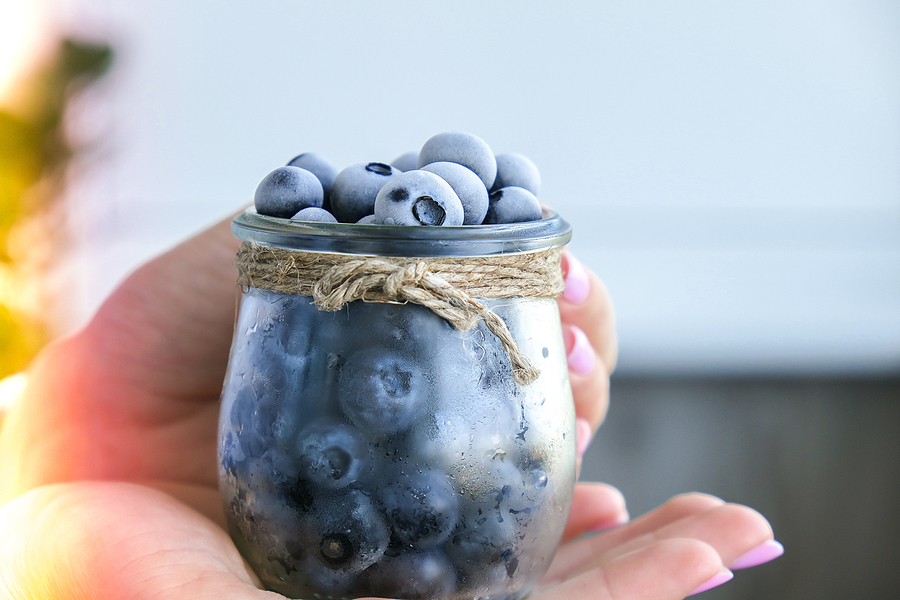The other day, I saw a meme on the internet that made me stop and think about what people know about vitamins. It had a picture of the iconic Flintstone’s vitamins, with the tag line “Popped a Wilma, I’m healthy.”
It was funny and sad all at the same time – because back in the 80s, many people really did think that’s all it took. Now, the tide has turned and more people than ever are questioning whether there’s any value in taking a multivitamin at all.
In this article, we’ll explore what vitamins are, what they do for your body, and what you should look for in a quality multivitamin. Then I’ll talk about some of the most common myths – and why they just aren’t true.
What Are Vitamins?
Vitamins are the building blocks of healthy nutrition. That’s why processed food really does nothing for you – the processing strips the food of essential vitamins and other nutrients.
Vitamins are the constantly moving worker ants of the metabolic process with functions that range from protecting eyesight to scrubbing cells to repairing deoxyribonucleic acid (DNA). Vitamins work hard with the help of enzymes to activate (catalyze) body functions. As coenzymes, vitamins regulate metabolism and help in myriad biochemical processes that release energy from food.
There are 13 essential (meaning your body can’t function properly without them) vitamins. While most of these are water-soluble, with excess excreted in urine, some are fat-soluble. These vitamins (A, D, E and K) are stored in fat tissue. High levels of these vitamins can be toxic in your body, so I always recommend working with an experienced healthcare professional before taking high doses of any of these fat-soluble vitamins.
There are several subcategories of vitamins critical to good health as well. Flavonoids and Carotenoids/carotenes are both derived from plants, and offer a range of protective benefits – such as reducing inflammation and reducing the risk of chronic disease. Coenzyme Q10 (CoQ10) is a vitamin-like substance that resembles the structure of vitamin E. It’s a powerful, naturally occurring antioxidant and mitochondrial helper.
Are Vitamins Worth the Investment?
There’s so much talk about vitamins among health care professionals and in the media. It’s easy to be overwhelmed or confused by conflicting information and simply decide that vitamins aren’t necessary and can’t help you.
When you have vitamin deficiencies that you don’t even know about, you can end up with a range of uncomfortable symptoms that just won’t go away. Even worse, your health care practitioner may dismiss these symptoms as a part of getting older. But there’s no need to live with symptoms long term. Every symptom has a root cause – and functional medicine can help you discover what that is!
Here’s a quick story that might sound familiar. One evening, Heather stopped at the grocery store. Right from the start, things didn’t go very smoothly. Her children were tired, hungry and cranky – and to make things worse, the race-car cart wasn’t available.
Heather had planned to pick up a multivitamin, but by the time she reached that aisle, the children were barely hanging on. She knew that comparing brands was important, but in the time that it took to read two labels and reach for a third, her daughter had had enough of waiting and ran off. Heather ditched the vitamins as she chased her daughter through the store, finally grabbing a pre-cooked chicken for dinner before rushing out the door.
The next day, Heather heard from her health care practitioner that store vitamins were a waste of money, since her body couldn’t absorb them anyway. She was so thankful she’d been waylaid!
When I heard Heather’s story, I realized I’ve still got a lot of educating to do. After all, if it’s true that multivitamins and nutritional supplements are a scam, a waste, even dangerous, then why would so many well educated and highly respected health care professionals recommend you take them?
The truth is, there’s a lot of misinformation out there, and you do need to be careful about selecting the right product. But when you work with your healthcare provider to make a well-informed, knowledgeable choice, vitamin supplements can really improve your health. But they don’t work in isolation. If you want to feel your best, vitamins must be considered just one aspect of a healthy, balanced lifestyle.
Let’s take a look at some of the most common myths that contribute to the confusion.
5 Common Multivitamin Myths
Myth 1: All Multivitamins Are Created Equal
There are so many brands of vitamins available – where should you even start? In tough economic times, many of us turn to discount stores to save a few dollars. But you’re only saving money if the product does what it’s supposed to do – it’s not much of a bargain if the vitamins won’t work as intended.
Companies who put out a discount product may not follow great manufacturing practices. These multivitamins are often poor quality, lacking in the nutrients they claim to provide. Many cheap multivitamins contain preservatives, sweeteners, artificial colors and flavorings, and other fillers. Read labels to be sure you understand exactly what you’re paying for.
Inexpensive multivitamins often contain nutrients in a form that is difficult for your body to break down and utilize. Professional formulated brands that combine naturally sourced nutrients with are chelated can be more readily digested and used by your body.
Think of it like this: Most people automatically think salads are good for them. But when your lettuce comes from a bag (and was sprayed with a bunch of chemicals to keep it fresh), and you pile on the salad dressing (filled with high-fructose corn syrup), suddenly it’s not so healthy. A salad made with organic spinach, spritzed with olive oil and lemon juice, with a sprinkling of walnuts on top is a much healthier choice. It’s all in the ingredients you use. The same is true with multivitamins!
Myth 2: If You Eat a Healthy Diet, You Don’t Need a Multivitamin
This myth is so common you might have even heard it from a doctor. But pay attention to what they’re really saying. Words can so easily be misinterpreted.
Several years ago, my colleague, functional medicine pioneer Mark Hyman, MD, said in a Huffington Post blog that you don’t need to take a multivitamin – but he wasn’t actually saying that at all. He was illustrating the importance of a high-quality multivitamin by detailing the ideal conditions that must be met to make them unnecessary. Here are his words:
“ONLY if you eat wild, fresh, whole, organic, local, non-genetically modified food grown in virgin mineral and nutrient soils, and not transported across vast distances and stored for months before eaten . . . work and live outside, breathe only fresh unpolluted air, drink only pure, clean water, sleep nine hours a night, move your body every day, and are free from chronic stressors and exposures to environmental toxins.”
Do you know anyone who fits that description? Since so many of those things are out of personal control, I don’t! It’s nearly impossible to meet those criteria in our modern world.
We are exposed, whether by choice or happenstance, to a variety of factors that will make it hard to get everything that our body needs nutritionally—even if we eat a healthy diet. Studies show that most of us do not get the basic nutrition that is needed to prevent disease, let alone achieve the optimal health that we’re working toward.
Of course, taking a vitamin is not a replacement for eating healthy food! But there are some vitamins you can’t easily get from food, and in these cases, supplements are more reliable for ensuring that your body has what it needs.
Current research suggests that vitamin K, for example, is absorbed better from tablets than from food. Iodine is another crucial micronutrient that many women lack. Vitamin D and omega–3s are simply not found in sufficient quantities in the food we eat to fully guard us from degenerative disorders.
A good multivitamin–mineral complex will cover these gaps. This is especially critical for women who have been under a lot of stress, are on a special diet, or have food sensitivities.
Myth 3: Multivitamins Are a Waste of Money
You are going to spend money on your health one way or another – either to prevent illness, or when you get sick. The cost of sick visits – or hospitalization – is far more expensive than a bottle of high-quality vitamins.
Isn’t it better to invest in your health before you get sick? A quality multivitamin–mineral complex will help protect your brain and nervous system function; it will spark your body’s energy production; it will support your tissue repair; it will protect your immune function; it will regulate your healthy sleep-wake cycle; it will balance your hormonal pathways; and so much more. That’s a lot of bang for your buck!
Research by a health services consulting firm, the Lewin Group, which the Wall Street Journal calls “the gold standard of health policy analysis,” applied accounting methods to determine that key essential nutrients are well worth the money they cost because they help to reduce illness and chronic disease in women.
A good supplement is never a waste of money, whether you’re a teen or a nonagenarian! Invest in the most important thing that you can—yourself and your healthy lifestyle.
Myth 4: Multivitamins Are Dangerous
While it’s true that high doses of certain vitamins (like those fat-soluble vitamins I mentioned earlier) can be hazardous to your body, that’s true of anything. If you drink water in an extreme amount, it can be harmful – but no one would suggest you never drink water!
Your body uses all of the nutrients and vitamins it contains together for proper functioning – and high levels of any of these just don’t occur naturally. But a well-balanced, high quality multivitamin won’t provide too much of any one vitamin or mineral if you take them properly.
So where did this myth come from? Some studies have reported negative effects from multivitamin use. But if you look closely at these studies, you’ll find that they generally targeted population groups that already had serious health issues, such as cancer or heart disease, or lifestyle habits that are known to be linked with higher risk, such as cigarette smoking or taking synthetic hormone replacement therapy (HRT). Some were poorly designed and didn’t control the type or frequency of vitamin participants were taking, on consider other lifestyle factors.
There is a very real concern about the interaction between multivitamins and certain prescription drugs, such as anti-clotting medications. That’s why you should always discuss any supplements and medications you take with your healthcare provider. But the truth is, if you’re being well-monitored, and you choose a high-quality multivitamin–mineral complex, including omega-3s, drug interaction should not be a problem for you.
Myth 5: Your Body Can’t Absorb Multivitamins
If your body couldn’t absorb multivitamins, warnings about interactions with prescription medications would be unnecessary. There would be no need for people scheduled for surgery to stop taking multivitamins that contain Vitamin E two weeks prior to minimize bleeding.
Your body is amazing, and it absolutely absorbs multivitamins. I think what people may be trying to convey is that the quality of the formulation will make a difference in how well your body can absorb and use the multivitamin. That’s exactly what I’ve been saying when I tell you that quality matters!
Bioavailability is the term often used to talk about how easily nutrient forms are digested, absorbed, and metabolized by the body. Pharmaceutical-grade vitamin and nutrient tablets are regularly tested to measure exactly how long they take to dissolve in the stomach and intestines.
The optimal nutrient forms are those that prove to be better absorbed and metabolized. For instance, it has been found that calcium supplements made from ground-up seashells are not absorbed and used as well as alkalizing mineral-salt forms, such as calcium citrate and calcium ascorbate.
I am conscientious about all these details and I want to offer the best to women who seek my assistance. That’s why my Multi Essentials contain a proprietary blend of natural-complex forms and fractions of vitamins A, B complex, C, D, E, and K, in addition to the chelated minerals that will ensure stability and absorbability.
The Right Multivitamin/Mineral Complex Can Make All the Difference
Before reading this, you may have been as confused as Heather, and with good reason. The value of multivitamins has been constantly questioned by the media and among nutritional researchers – so who wouldn’t be confused?
Because I know that our modern lifestyle, external environment, sources of food, and excessive levels of stress are not ideal, I firmly believe that a high-quality, easily absorbed, multivitamin-mineral complex, free of additives and fillers – like my Multi Essentials – provides necessary protection and support for your body.
Now that I’ve addressed some of the common myths, I hope you will weigh the evidence, and do what is right for your health – both in the short-term and the long-term. Here’s to you!
Resources:
https://www.verywellfit.com/vitamin-p-how-flavonoids-benefit-your-health-4165402







